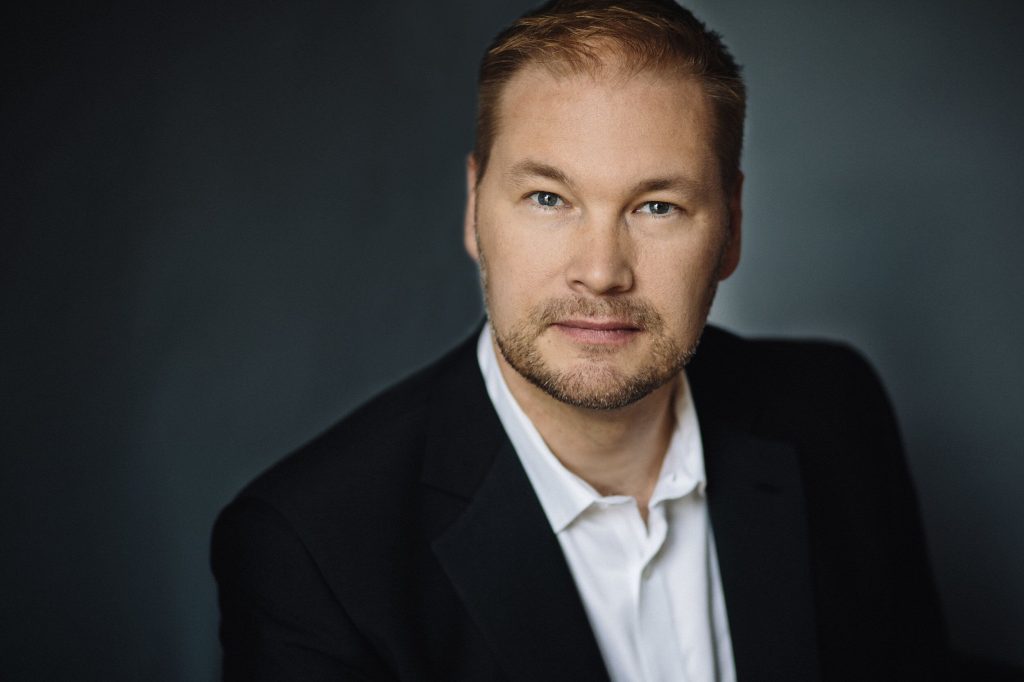SummerFest’s Sublime Spiritual Journey
The renewal of La Jolla Music Society’s SummerFest is evident on several fronts. This 2019 season, which opened Friday, August 2, is now under the direction of the young pianist Inon Barnatan; the concerts are presented in the organization’s new Conrad Prebys Performing Arts Center in downtown La Jolla, and Barnatan’s programming projects a refreshing rejuvenation.

Tyler Duncan [photo courtesy of the La Jolla Music Society]
Opening with J. S. Bach’s solo cantata Ich habe genug, BWV 82a, we explored Bach’s depiction of the soul’s eager anticipation of heavenly bliss in the arms of the Savior. Moving on to “Louange à l’immortalité de Jésus” from Olivier Messiaen’s Quartet for the End of Time, we were invited to share Messiaen’s mystical communication in the present with the transcendent Jesus, and in the final movement of Gustav Mahler’s Fourth Symphony, we were privileged to observe the bliss of a heavenly pastorale as depicted in the song “Das himmlische Leben” from Das Knaben Wunderhorn.
In the solo cantata, Canadian Tyler Duncan’s burnished baritone communicated Bach’s deep spiritual confidence with impeccable phrasing faithful to Baroque practice. In the cantata’s outer movements he was joined by oboist James Austin Smith, whose exuberant descants created a sonic halo around the singer. Equally sensitive to period performance practice, the string quintet and harpsichordist Tina Chong fleshed out the cantata with waves of translucent instrumental support.
Messaien may have written The Quartet for the End of Time in a World War II POW camp, but the spirit of his music floats in celestial freedom. Violinist Stefan Jackiw spun his high, ethereal line with a delicate edge that suggested it could survive only in such empyrean heights, and Conrad Tao supplied diaphanous chords from the piano that gently floated up to his serene melody.
One of Arnold Schoenberg’s pupils, Erwin Stein, made this unusual chamber adaptation of Mahler’s Fourth Symphony for a dozen instruments and soprano. Especially in the ingratiating acoustics of the Baum Baker Concert Hall, the ample, mellifluous solos the composer gave to the woodwinds could be savored in a way that is not possible in a huge concert hall. Kudos to flutist Henrik Heide, clarinetist Anthony McGill, and oboist Smith for crafting such sensuous, shapely solos to be enjoyed at close range.
The downside of this chamber version of an hour-long symphony is the lack of an orchestral string section to carry and envelope the listeners through the composer’s extended dalliances and forays. Although the quintet of strings on stage played with laudable finesse and prowess, more than once I wished for the comfort and support of plush string sections.
Happily, soprano soloist Susanna Phillips made the wait for her fourth movement appearance worthwhile. Her clear, supple soprano beautifully painted the song’s heavenly picnic, where saints provided a sumptuous meal; the participants danced and frolicked, and Saint Cecilia’s angelic musicians serenaded. Osmo Vänskä, Music Director of the Minnesota Orchestra, conducted this version of the Mahler Fourth Symphony with expected authority and insight.
The La Jolla Music Society’s SummerFest presented this concert at the Conrad Prebys Performing Arts Center in downtown La Jolla on Saturday, August 3, 2019. The festival continues in this venue through Friday, August 23, 2019.

Ken Herman, a classically trained pianist and organist, has covered music for the San Diego Union, the Los Angeles Times’ San Diego Edition, and for sandiego.com. He has won numerous awards, including first place for Live Performance and Opera Reviews in the 2017, the 2018, and the 2019 Excellence in Journalism Awards competition held by the San Diego Press Club. A Chicago native, he came to San Diego to pursue a graduate degree and stayed.Read more…
